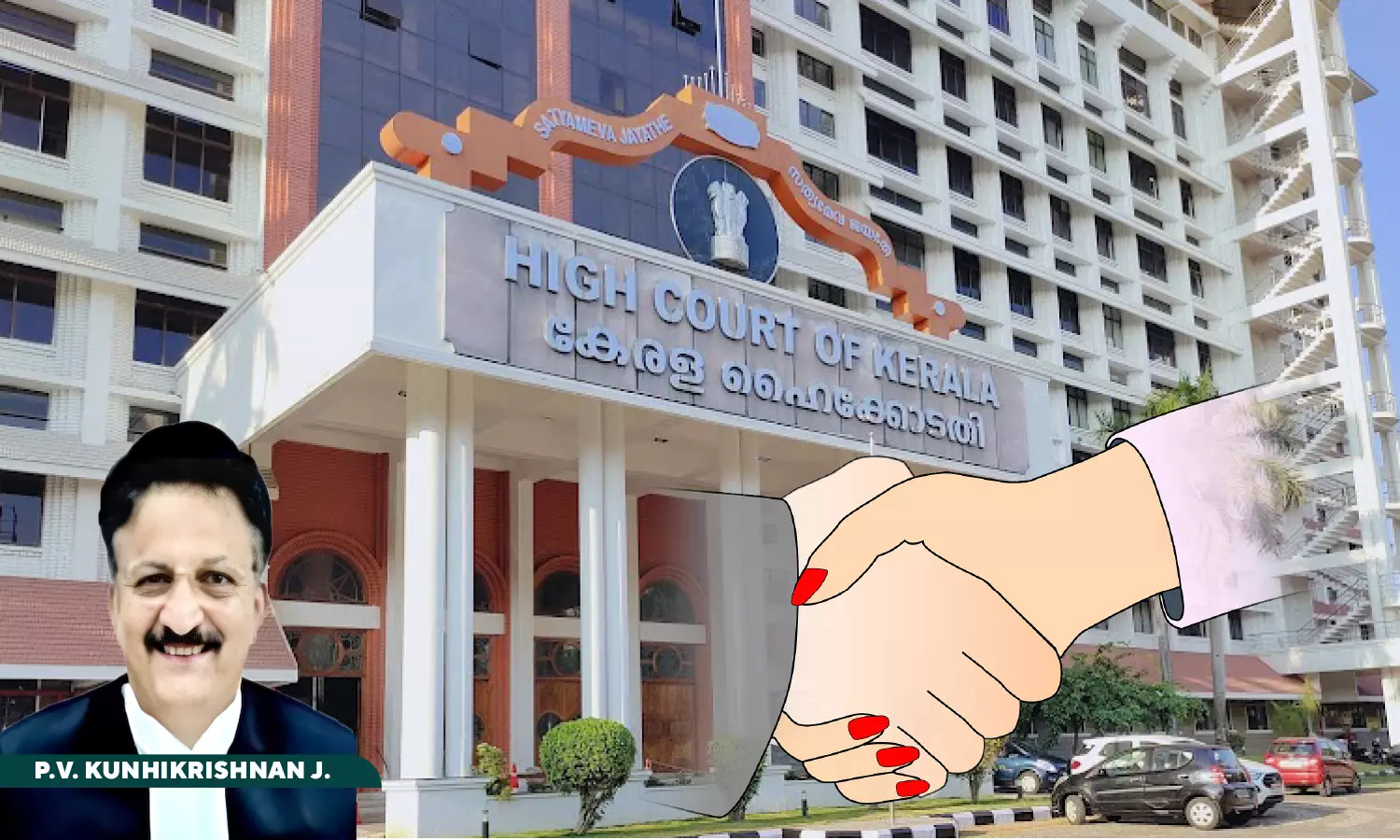
Can't Compel Others To Follow One's Religious Practice: Kerala HC Refuses To Quash Charges Against Muslim Man For Remarks Against Muslim Girl Who Shook Hands With Male Minister
 |
|The Kerala High Court dismissed a petition to quash criminal charges against a man for accusing a Muslim girl student of violating Shariat law and committing adultery by shaking hands with a male Minister. The Court held, “No religious belief is above the constitution and the constitution is supreme.”
The accused was charge-sheeted under Section 153 of the Indian Penal Code (IPC) and Section 119(a) of the Kerala Police Act, 2011 (the Act) for his speech where he allegedly remarked that a female law student, for her participation in an official event during an interactive session conducted by then Finance Minister Dr. T.M. Thomas Isaac had violated Shariat Law and committed adultery by touching another man.
A Single Bench of Justice P.V. Kunhikrishnan found, “A young brave muslim girl comes forward and says that, it violates her personal freedom of religious belief. In such situations, our constitution will protect her interest. Moreover, it is the duty of the society to support her.”
Advocate V.A. Vinod appeared for the appellant, while Senior Public Prosecutor Renjith. T.R. represented the respondents.
The grievance of the Muslim student (complainant) was that due to the circulation of the WhatsApp video, she and her family were put in disgrace.
The High Court noted that "shaking hands" was a traditional gesture symbolizing greeting, respect, and solidarity. While acknowledging that Islam prohibits physical contact between unrelated members of the opposite sex, the Court stated, “One cannot compel another to follow his religious practice by the latter.”
“What is the business of the petitioner to attack the 2nd respondent when the 2nd respondent voluntarily decided to give a handshake to the Hon’ble Minister while accepting a gift for participating in a discussion?” it remarked.
The Bench clarified that the right to propagate religion under Article 25 of the Constitution did not mean that religious practice should be imposed on others.
“Therefore, the 2nd respondent has a right to follow a religious practice in her own way. None can impose a religious belief of his own on another. Therefore, if the allegation against the petitioner is correct, the same cannot be accepted in India, where the Indian Constitution is supreme,” the Court held.
“One cannot impose his religious practice on another and it is a personal choice of every citizen. If the prosecution case is correct and proved through cogent evidence, it is a serious thing which will definitely intrude on the personal liberty of the second respondent. Whether Section 153 IPC or Section 119(a) of the Kerala Police Act or some other offences are attracted based on the above allegation is a matter of evidence,” the Court remarked.
Consequently, the Court did not exercise its extraordinary jurisdiction under Section 482 of the Cr.P.C/Section 528 of the BNSS to quash the proceedings against the accused and observed, “if this Court starts to entertain criminal miscellaneous cases to quash cases triable by the Magistrate courts and other courts saying that, no ingredients of the offences alleged in the police charge are attracted, this court will be doing the work of trial courts.”
Accordingly, the High Court dismissed the petition.
Cause Title: Abdul Noushad @ Noushad Ahsani v. State Of Kerala & Anr. (Neutral Citation: 2024:KER:73111)